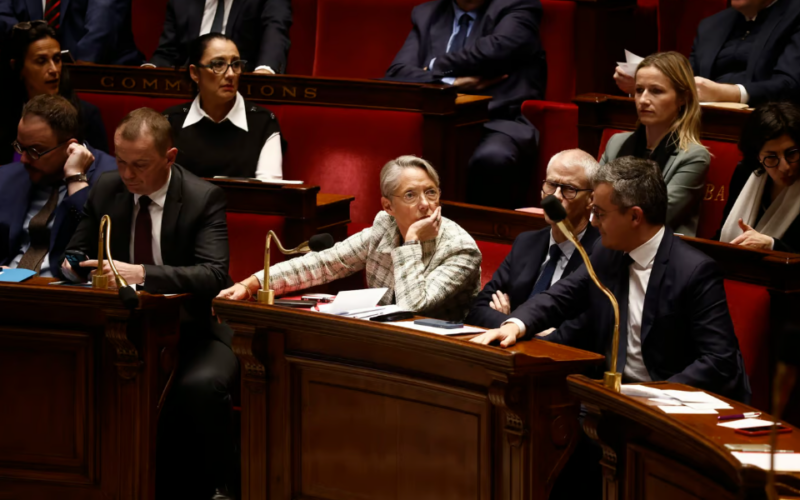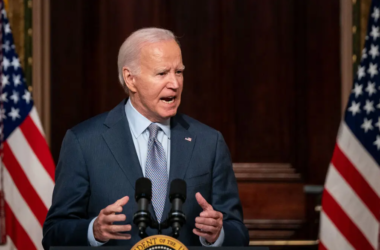France’s Prime Minister, Elisabeth Borne, delivered a significant blow to President Emmanuel Macron’s government on Wednesday, acknowledging that portions of the administration’s own immigration bill were unconstitutional. This admission comes in the aftermath of a tense vote in the National Assembly, where Macron’s flagship immigration bill, significantly toughened to secure support from the conservative Les Républicains party, was narrowly approved. The controversial legislation has not only strained Macron’s coalition but also triggered accusations of centrist concessions to xenophobia due to support from the far-right National Rally.
During an interview with radio France Inter, Prime Minister Borne confirmed that certain aspects of the immigration bill were indeed unconstitutional. She admitted to harboring doubts about specific measures, which were communicated to conservative counterparts during negotiations. The admission follows a perplexing pattern of Macron’s government sending mixed messages regarding the legislation, with officials lauding its success while simultaneously condemning parts of it as potentially violating the constitution.
Government Spokesperson Olivier Véran disclosed that President Macron himself referred the legislation to the Constitutional Court to assess its constitutionality. Regardless of the court’s decision, the passage of the bill has underscored clear divisions within Macron’s centrist coalition, casting doubts on the president’s ability to govern effectively since the setback in parliamentary elections last year. The National Assembly approved the bill with a narrow margin, but nearly a quarter of Macron’s coalition members abstained or voted against it.
The fallout from the bill’s approval is evident in the resignation of Health Minister Aurélien Rousseau, a former Socialist, less than 24 hours after the vote. Rousseau, expressing his inability to justify the bill, handed in his resignation. Macron now faces pressure to reconcile his Renaissance party, particularly with left-leaning MPs who opposed the legislation. Internal strife is palpable, with concerns about Macron’s leadership and the ability to maintain cohesion within his coalition.
As Macron grapples with internal challenges, the far-right leader Marine Le Pen has seized the opportunity to capitalize on the president’s difficulties. Le Pen contends that the National Rally achieved an “ideological victory” over the hardened immigration legislation, further complicating Macron’s political landscape.
The admission of the immigration bill’s unconstitutionality by Prime Minister Elisabeth Borne has intensified the immigration crisis facing President Emmanuel Macron. The fallout from the controversial legislation has exposed fault lines within Macron’s coalition, raising questions about his leadership and the unity of his centrist party. As Macron seeks to mend relations with dissenting members and address the internal strife, the implications of this immigration debacle could have lasting effects on his ability to govern effectively and maintain political stability in France.








